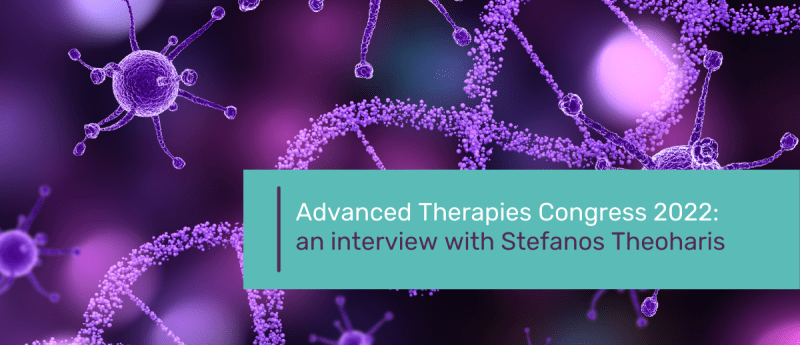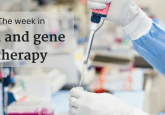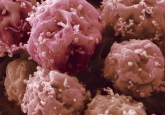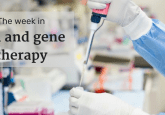The valuable resource of shared expertise: an interview with Stefanos Theoharis

During this interview at Advanced Therapies 2022 (24-25 May, London, UK), Stefanos Theoharis discusses the value in attending different conferences, as well as the future of cell and gene therapy and gives his advice to start-ups.
Please introduce yourself and tell me a bit about what you do.
I’m Stefanos Theoharis, and at the time of this interview, I was Chief Business Officer for Bone Therapeutics (Waloonia, Belgium). I came to study biology in the UK and I fell in love with gene therapy from the first term. I decided then that this is what I want to do. Since then, I’ve been working on different types of gene and cell therapy projects. While I was studying for my PhD, I got involved with the London Technology Network (London, UK) through the Technology Transfer Office at Imperial College London (UK), which opened the window of business in biotech for me. I decided that this was a very exciting approach and I moved into investment banking to learn more about business – from there I moved into pharma. I was Director of Business Development at Roche (Basel, Switzerland) looking at emerging technologies, including gene therapies, cell therapies and antisense technologies. Since 2011, I’ve been heading business development for various companies in the cell and gene therapy space.
What made you particularly interested in Advanced Therapies?
This is one of the most established conferences and, project director, Jessica Robinson and the rest of the organizers have always done their best to incorporate feedback. They include all the things that we consider to be important in the conference agenda. This conference combines technical and commercial topics on all the aspects of advanced therapies very well. You can hear about cell therapies, genetically engineered cell therapies, regenerative medicines and gene therapies. I think that cross-pollination is important in the industry. We all need to learn from each other; I believe that Advanced Therapies is a great place to do that.
You also work closely with the ISCT; have you found value in collaborating between the two conferences or are there lessons that you learned from one that you can apply in the other?
I’m part of the Business Development and Financing Committee at the International Society for Cell and Gene Therapy (ISCT. CA, US). The ISCT has traditionally been a more academic conference. Of course, now that there has been so much transfer of technologies from universities into industry there are a lot more companies who are interested in the ISCT. We pick up new technologies and speak with experts – that expertise is a valuable resource. I would probably pick up more new ideas and new technologies at the ISCT but pick up more later stage collaborations and discussions here. Advanced Therapies is more commercial and I think that’s great. One shouldn’t try to be the other. Each has its role and that’s why one should be feeding off the other rather than competing to do the same thing. Each focuses on what it does best.
Is there any advice that you would give to start-ups to make the most of a commercial style conference?
I think a lot of the start-ups here are still trying to figure out a strategy or business plan. That’s one of the most important activities to happen within a start-up in its early days of conception. They should spend as much time as they can talking with people, getting feedback, ideas and cautionary remarks towards different areas as well as getting people’s recommendations towards other approaches. They need to talk to a lot of people. I would urge them to go to conferences where they can do that and even end up recruiting people as experts, as consultants and build a Scientific Advisory Board that can help steer the company. Some of the decisions being made at the start-up stage are probably going to determine success or failure in the future.
What would you like to see from the CGT space in the next five to 10 years?
Generally, we tend to overestimate what happens in the long-term and underestimate the short-term. If you look at the history of cell and gene therapies, you can see that on the cell therapy side, we’ve started with autologous treatments now moving into allogeneic treatments, and looking into more sophisticated allogeneic treatments and products. That is the path we’re on now: building the future of the allogeneic space. I think that’s going to take us at least 10 years to start commercializing multiple credible products that make a difference. Then there’s the tools, which I consider to be very important. There are gene editing approaches, induced pluripotent stem cells (iPSCs) and different types of vectors for modification. These are driving the field forward and we’re going to see a lot more of those being developed and refined for different applications. Lastly, in the gene therapy space, the vast majority of success has been local delivery to individual organs. If we’re going to see gene therapy succeed in the broader sense, we need to see more targeting of specific organs so that we can move towards systemic administration more broadly. A lot of very promising work is already ongoing and in 10 years we will still be developing new tools. We will be kept very busy over the next few decades at least.
You might also like:
- Connecting, conferencing and collaborating: an interview with Jessica Robinson
- Navigating the regulatory space of cell and gene therapy: an interview with Nneka Onwudiwe
Disclaimer
The opinions expressed in this interview are those of the interviewee and do not necessarily reflect the views of RegMedNet or Future Science Group.





